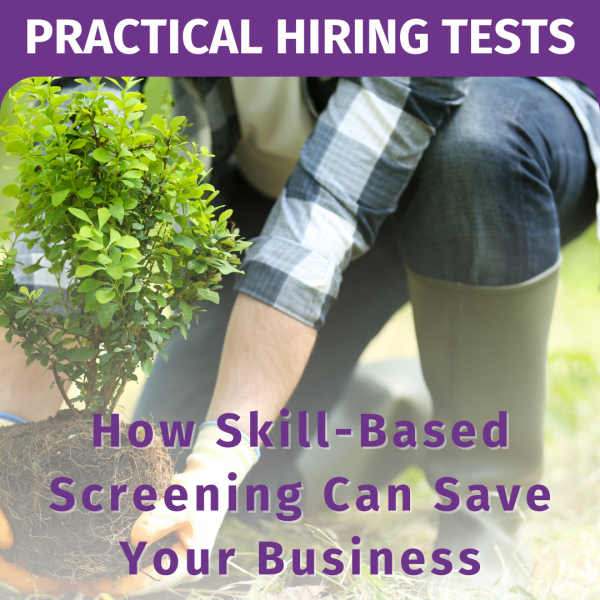
Hiring the right people isn’t just about checking resumes or conducting good interviews. It’s about making sure candidates can actually do the work your business needs—and thrive while doing it.
That’s why practical skill-based screening can be a game-changer, especially for small businesses where every hire has a big impact.
Zach Abraham, Principal and CEO of AlignHR, shared a great example during the latest episode of Beyond Compliance. When a landscaping client struggled to find reliable employees, they made one simple change: they added a hands-on skills test to their hiring process.
The results were immediate—and impressive.
Interviews are helpful. Resumes are helpful. References can be helpful. But none of those things show you exactly how someone will perform day-to-day on the job.
Here’s where traditional hiring often falls short:
As Zach explained, “It’s easy to hire someone who sounds good. But if they can’t physically do the work—or if they can’t follow clear instructions—you’ll find out the hard way once they’re already on the team.”
Testing for practical skills during the hiring process reduces guesswork. It ensures you’re hiring for real ability, not just potential.
One of AlignHR’s clients was a landscaping company frustrated by repeated hiring failures. New hires would promise they could handle outdoor labor but quickly quit—or perform poorly—once hired.
Zach suggested a hands-on assessment:
The test wasn’t designed to be grueling. It was about seeing if candidates could follow directions, use proper body mechanics, and take pride in their work.
The outcome? The client’s hiring success rate improved dramatically. Not only did they hire stronger workers, but employee retention also increased because expectations were clearer from the start.
Skill-based screening benefits businesses of all sizes, but it’s especially helpful for small teams where every position matters.
Here’s why:
Practical testing also sends a strong message to candidates: This is a place that values quality and clear standards.
You don’t need to be in landscaping to use skill assessments. Here are a few examples for different types of businesses:
The key is designing a simple, job-relevant task that highlights core skills needed for success.
If you decide to incorporate practical tests, keep a few best practices in mind:
Skills can be trained—but attitude and attention to detail are often harder to teach. Testing helps reveal both.
Adding skill-based screening doesn’t have to complicate your hiring process. In fact, it often simplifies it by giving you better data, faster.
When you know your candidates can meet real-world expectations, you avoid costly mistakes and build a stronger team from day one.
Zach summed it up best: “It’s not about making it harder to get hired. It’s about making sure both sides—businesses and employees—start off with clear, honest expectations.”
Looking to strengthen your hiring practices and build a team that lasts? Learn how AlignHR partners with small businesses to create better hiring strategies that actually work.
This blog draws from Episode 2 of Beyond Compliance, where Zach Abraham and Luke Hladek discuss practical, real-world approaches to improving small business hiring.
Listen to the full episode below—and subscribe to get smarter about HR with every conversation.